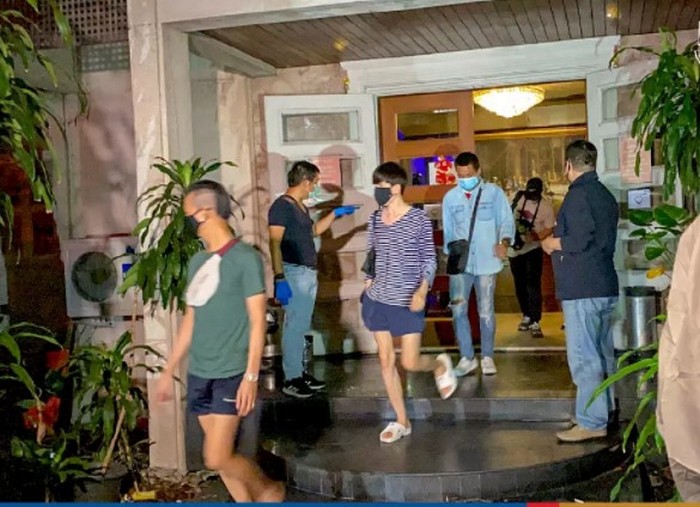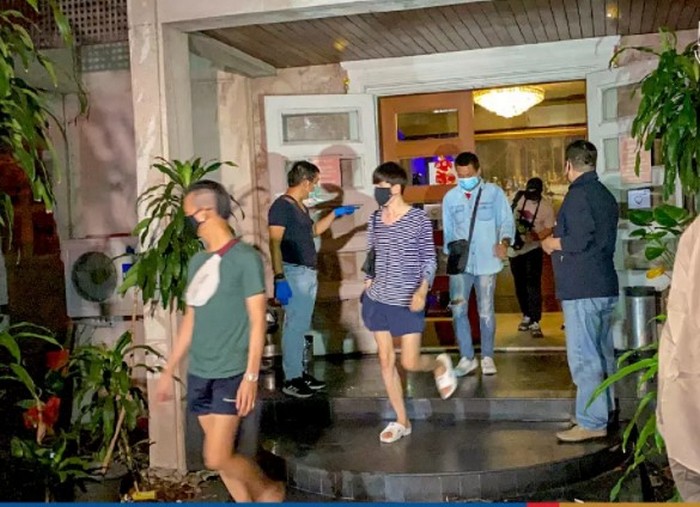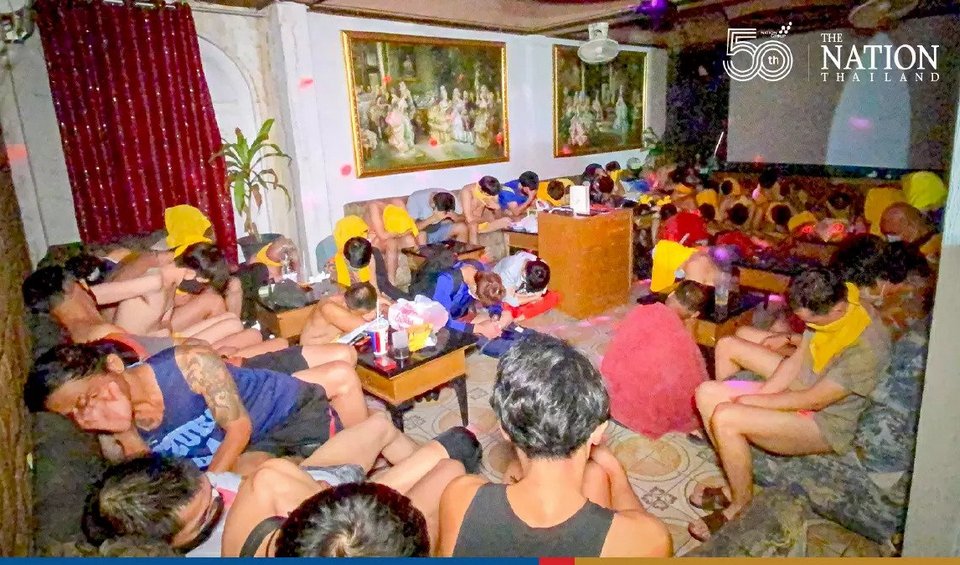

The arrest of dozens of men at the Faros Sauna 2 in Bangkok for breaching the country’s Covid-19 lockdown restrictions and committing drug-related crimes has highlighted the emergence of chemsex parties as the “new normal”. Chemsex is the practice of having consensual and enhanced gay sex with multi-partners whilst under the influence of certain drugs such as crystal meth, mephedrone and GHB.
Much of the media here and overseas have given the impression that western tourists were participating in the event – for example using file photographs of anonymous white men in handcuffs – yet there is no evidence that any non-Thais were involved in this or, indeed, in some previous chemsex arrests in Thailand over the past eighteen months. However, it has to be noted that a full list of those arrested has not been officially issued. That’s not unusual.
The reality, of course, is that there are virtually no foreign tourists in Thailand right now. The expats here are mostly work permit holders, with an income to protect, and settled retirees who know full well the dangers of breaking Covid-19 restrictions: they will lose their visas and be barred from re-entry. According to the Bangkok Metropolitan Administration, the vast majority of those attending chemsex parties are aged 20-40. Most expats are considerably older than that and are heterosexual. Gay pensioners anyway do not provide the mainstay of the chemsex market.

A spokesman for KRUBB Bangkok, a gay counseling center, said that up to a dozen Thai patients per week were now turning up for help, compared with one or two before the pandemic. Sergeant Shaowpicha Techo, a Bangkok-based psychologist, said no foreigners had turned up there. Chemsex users are at risk off drug addiction or overdoses, as well as mental health problems, HIV infection and violence including physical assault and worse. Not to mention being prime targets for the pesky virus to invade.
In April, the Thai government closed all bars and nightclubs in an attempt to curb the pandemic and, according to the Thomas Reuters Foundation, thus accidentally created another public health crisis – a spike in chemsex cases. Gay hook-up apps such as Blued and Grindr allow their members to look for give-away tags such as “high and horny” or “party and play”, whilst chemsex parties are promoted in some countries on social media.

But this publicity is not common in Thailand as a special police unit monitors Facebook, Twitter etc. Several prostitution rackets here have been raided after unintentional internet tip-offs. Yet the international perspective is awesome. Rusi Jaspal, a professor at De Montfort University in Leicester, said “Chemsex is very pervasive and is now leading to physical and mental illness spreading to hard-to-reach groups across Europe.” The International Association of Providers of AIDS Care described chemsex as a “challenge of proportions we cannot fully comprehend at this time.”
Sources at Pattaya and Banglamung police stations say they do not know of any chemsex prosecutions in the resort. Nationally, the Royal Thai Police’s antinarcotics bureau declined to comment. In Bangkok, the Princess Mother National Institute on Drug Abuse Treatment said it had noticed a surge in chemsex during the pandemic, but acknowledged that police and other officials did not yet have any expertise.
Chemsex is a growing yet concealed problem for Thai society. The Bangkok Rainbow Association told Reuters that these parties are the “new normal” amid the pandemic. They are usually well-hidden from prying eyes, though obviously vulnerable to informers. Thai authorities would be foolish simply to dismiss the issue as a stupidity indulged by a tiny fringe. Chemsex is potentially much more of a serious challenge than illegally drinking a couple of beers with your mates or neighbors.
